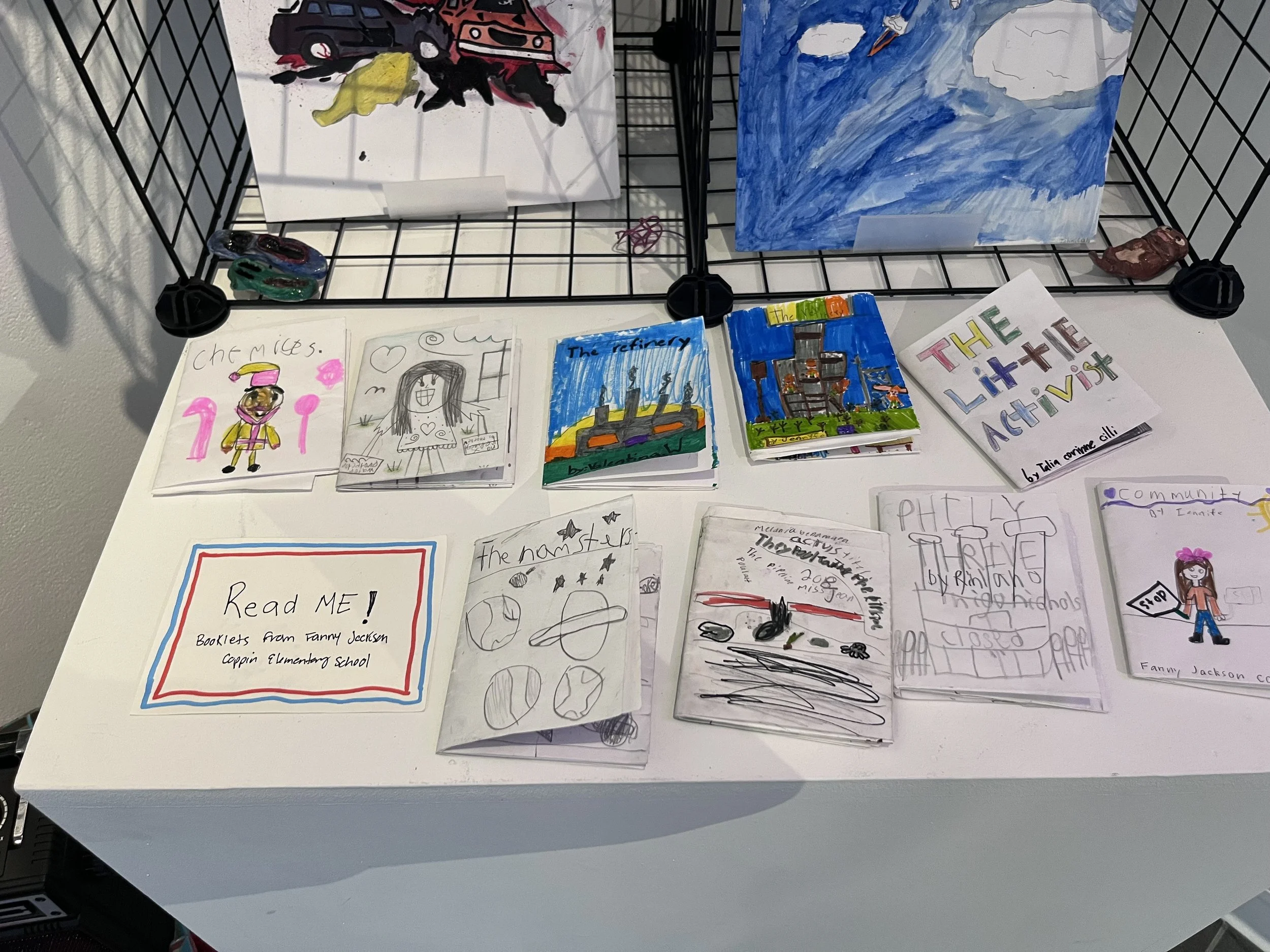We Are All Connected: Teaching Stewardship Through EcoArts
By Nella Rohan, ArtWell Staff Writer
What does it mean to be a good steward of the earth, and how can art help young people discover the answer for themselves?
For Teaching Artist Jean Wong, that question is at the heart of EcoArts, ArtWell's nature-based art program that blends creative expression with environmental consciousness. With second graders in South Philadelphia, Jean uses natural and recycled materials, storytelling, and community history to invite students into a deeper connection with the world around them—and with one another.
"I've been interested in building an art practice that's more aligned with my values for a while now," Jean shares. "Beginning in 2021, I started making my own paint out of pigment I sourced from an environmental conservancy in Indiana, PA. That sparked an interest in making art materials from local resources, something that feels really aligned with mutual aid."
That philosophy extends into the classroom. Whether students are crushing dried leaves for pigment or flipping through donated magazines from a neighborhood Buy Nothing group, the focus is on cultivating resourcefulness, care, and connection.
Jean gravitates toward natural pigment in particular. "We get to learn about material history—the different colors and the cultures that used them. And with collage, using what we find or what people in our community are done with, we're reinforcing that we already have so much around us that can be transformed into beauty."
But EcoArts isn't about aesthetics in the traditional sense. "Kids are already incredibly creative," Jean says. "I use natural or recycled materials to model that anything can become something interesting. And more importantly, beauty and hype don't really matter. What matters is being adaptable, collaborative, and empathetic. It's not about what we make—it's about the growth and relationships that happen while we make it."
That growth often looks like small but powerful transformations. Jean recalls a plein air painting day in the schoolyard, where students each had their own moment of artistic joy, but what stood out most was the cleanup. "They took it upon themselves to fold up the 10' x 12' tarps we'd used," Jean recalls. "Watching a group of second graders figure out how to fold that giant piece of plastic into a square, communicating, problem-solving together; that was the highlight. That embodied everything I hoped they'd learn: independence, responsibility, and collaboration."
EcoArts also encourages students to think of themselves as activists. During one unit, students read We Are Water Protectors by Carole Lindstrom and Michaela Goade, a lyrical children's book inspired by Indigenous-led movements to protect clean water. Using that as a springboard, Jean's class wrote their own poems about the living beings they want to protect, and created zines about Philly Thrive, a local environmental justice group fighting against the pollution caused by the now-closed PES refinery.
"EcoArts is about appreciating nature that exists around us and learning how to be stewards of the land," Jean explains. "That can mean participating in a community garden, or resisting the oil refineries that pollute our cities. We all have a role to play."
That message of relationality between people, place, and planet is at the core of ArtWell's EcoArts program. And it's not just the students who are transformed.
"I've learned to listen to young people with greater openness and humility," Jean reflects. "Teaching is more easeful when I move at the speed of trust. Every moment with my students is precious and not to be taken for granted."





